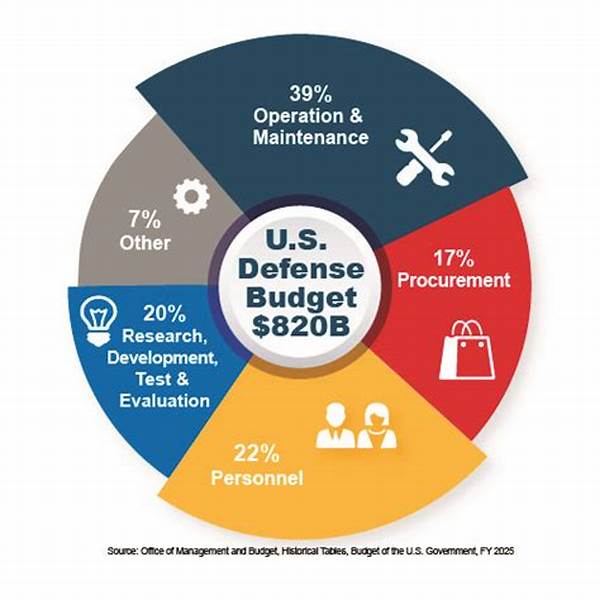The allocation of defense budgets is a complex and multifaceted process that is shaped by a host of determinants. Understanding the factors influencing defense budget allocations is essential for policymakers, military strategists, and scholars alike. These factors encompass geopolitical considerations, economic constraints, technological advancements, and domestic politics, amongst others. A nation’s defense budget is not merely a reflection of its military aspirations; it is also indicative of its broader national interests and priorities. As nations navigate an increasingly volatile international arena, the formulation and allocation of defense budgets remain pivotal in ensuring national security and strategic superiority.
Geopolitical Considerations
Geopolitical dynamics stand as a primary catalyst in influencing defense budget allocations. In an era marked by shifting alliances, territorial disputes, and emerging global threats, nations are compelled to recalibrate their defense spending. Increased tensions in specific regions necessitate enhanced military readiness, prompting governments to allocate substantial portions of their budgets to defense. For instance, nations facing persistent threats from neighboring states are inclined to bolster their defense capabilities. Moreover, participation in international coalitions and peacekeeping missions often requires significant financial commitments, thereby impacting national defense budgets. Consequently, geopolitical considerations play a paramount role in shaping defense expenditure priorities.
Economic Constraints
Economic constraints significantly mold the framework of defense budget allocations. Governments must balance competing fiscal demands while ensuring adequate defense funding. Economic recessions, fluctuating currency values, and financial austerity measures can limit available resources for defense. In such scenarios, strategic prioritization becomes imperative to optimize defense allocations. Additionally, the economic health of a nation influences its capacity to sustain long-term defense projects. Thus, economic factors, alongside fiscal policies, serve as critical determinants in the formulation and adjustment of defense budgets.
Technological Advancements
The influence of technological advancements on defense budget allocations cannot be understated. The rapid pace of technological innovation necessitates continuous investment in research and development to maintain a competitive edge. As nations seek to modernize their military forces, considerable financial resources are directed towards acquiring advanced weaponry and defense systems. Furthermore, the integration of cutting-edge technologies such as artificial intelligence and cyber capabilities requires substantial budgetary allocations. Consequently, the imperative to remain technologically superior drives nations to continually reassess their defense budgetary commitments.
Domestic Politics
Domestic politics serve as another determinant impacting defense budget allocations. Political ideologies, party agendas, and legislative processes can all influence defense expenditure decisions. Governments may face pressure to increase or decrease defense budgets based on political narratives and electoral promises. Additionally, public opinion and advocacy groups can sway the direction of defense spending. As political landscapes evolve, so too do the factors influencing defense budget allocations, ultimately reflecting the intricate interplay between politics and policy making.
Strategic Partnerships
Strategic partnerships and alliances play a crucial role in shaping defense budget allocations. Nations engaged in defense collaborations often adjust their budgets to fulfill alliance commitments, joint exercises, and shared defense goals. Such partnerships can alleviate financial burdens by promoting cost-sharing and cooperative defense initiatives. Conversely, nations seeking to establish or strengthen strategic relationships may increase defense spending to signify their commitment and enhance collective security arrangements. Consequently, the dynamics of strategic partnerships significantly impact defense budgetary considerations.
Internal Security Concerns
Internal security concerns are pivotal in shaping defense budget allocations, especially for nations facing insurgency, terrorism, and civil unrest. The necessity to address domestic security challenges compels governments to allocate resources towards intelligence, counterterrorism operations, and internal defense mechanisms. Prioritizing internal security often influences the distribution of defense budgets, reflecting a nation’s commitment to safeguarding its internal stability and societal cohesion. Consequently, the factors influencing defense budget allocations must consider the intersection of national defense and internal security imperatives.
Summary
In conclusion, the factors influencing defense budget allocations are complex and multifaceted, encompassing geopolitical, economic, technological, domestic political, and internal security considerations. The allocation of defense budgets is an ongoing process that requires nations to continually reassess their priorities amidst changing global dynamics. Geopolitical tensions, economic constraints, technological advancements, and political landscapes all interact to shape defense spending decisions. Furthermore, strategic partnerships and internal security concerns are significant factors that influence how a nation allocates its defense resources. Navigating these factors demands a comprehensive understanding of the socio-political and economic landscape, underscoring the need for informed and strategic policy-making. Robust and agile defense budget allocations are pivotal in ensuring national security, enabling nations to address both external threats and internal challenges effectively. As such, the factors influencing defense budget allocations are paramount in shaping a nation’s defense posture and ensuring resilience in an unpredictable world.





